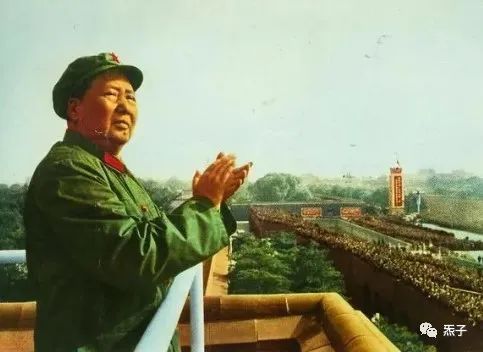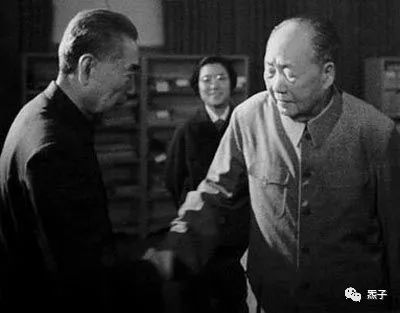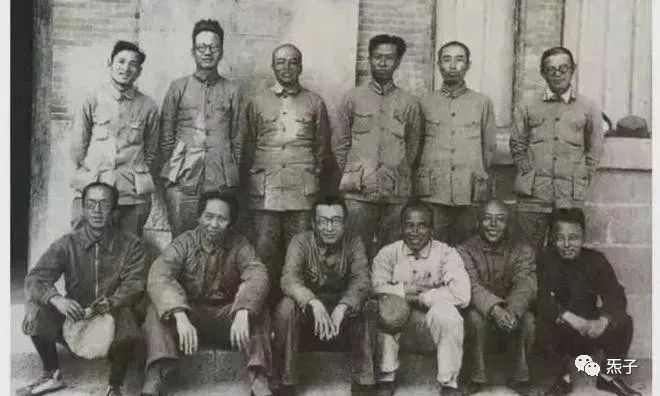Expose Nanjing temple worship, Mao Baum's loneliness and desolation in his twilight years, finally understand

Because of the Russian-Ukrainian war, the great changes in the past century are accelerating, and all kinds of shocking news at home and abroad are dizzying.
In China, two big news broke out in one day.
The first is the fact that DD endangers national security. A year ago, on the occasion of the 100th anniversary of the Chinese Red Team, DD sold state secret big data and secretly went public in Mexico, and was jointly investigated by seven state departments. This is a precedent since the founding of the country. Today, a year later, one of the departments issued an announcement confirming that the company " has data processing activities that seriously affect national security, as well as other violations of laws and regulations, such as refusal to fulfill the clear requirements of the regulatory authorities, violation of laws and regulations, malicious evasion of supervision, etc. Didi Company Illegal and illegal operations have brought serious security risks to the security of the country's key information infrastructure and data security. Because it involves national security, it is not disclosed in accordance with the law."
Later, it was rumored that the Xuanzang Temple in Nanjing actually enshrined the Japanese pirates war criminals Gu Shoufu and Matsui Ishigen who had bloody debts to the Chinese people. Moreover, it is reported that the monastery chairperson was acquainted with many high-ranking officials in Nanjing. In Nanjing, 300,000 compatriots were massacred by Japanese pirates.
What is all this called?
Drop your jaw?
In fact, half a century ago, the late teacher Mao had foreseen this kind of risk and tried his best to prevent it.
August 18, 1966, Tiananmen Square.
Teacher Mao met the Red Guards at the Tiananmen Gate for the first time, and there were more than one million people in the square.

At that time, there were foreign guests on the Tiananmen Gate, and Guan Yuqian, a young cadre who accompanied the foreign guests (see also the original article " Yu and Cong, the magical past of two Chinese intellectuals who ran away from each other" by Qi Zi. Click on the title to view). If necessary for the work, Guan came to the interview site in advance. Years later, he recalled that day in an interview with the media:
"I suddenly saw Zhou Enlai coming early. Zhou Enlai saw me right away, Xiaoguan, come here, come here." Zhou Gong and Guan's father were old friends, and a classmate who was a work-study student in France (France) back then knew "Xiaoguan".
"I ran away, the Prime Minister said to accompany me to go for a walk, and I stayed with him until I walked to the side of the Beijing Hotel. I said Prime Minister, you looked so tired, he said that I didn't sleep last night, and today I will have a hundred Wan Hong guards want to pass, I can't let Chairman Mao stand for six or seven hours, so I let everyone walk again last night, I want them to finish within three hours. I said that the Prime Minister is up to you. Ah. Oh, I can't let Chairman Mao's body get too tired ..."
1
After Zhou Gong was bedridden, especially when he woke up from a coma after being critically ill, he asked many times, where does the teacher live now? How's your body?
Duke Zhou and Teacher Mao are not far from each other. One is in the 305 Hospital on the west bank of Beihai, and the other is next to the swimming pool on the west bank of Zhongnanhai, with only a red wall and an asphalt road in the middle. However, the people of Mao and Zhou who have been with him for more than half a century and have made great achievements have all been sick and have never seen each other again in this life.

When he was dying, Zhou Gong asked the doctor, his voice was weak and barely audible:
"Chairman, how is the chairman's health?"
"No major change," the doctor reported in a low voice.
"As long as the chairman is still alive, I'm relieved." Zhou Gong finished speaking and passed out again.
On January 8, 1976, Zhou Gong died, wearing a badge of Teacher Mao and the five characters "serving the people" on his chest.
The bad news reached Teacher Mao. He didn't say a word for a long time, just nodded to show that he knew. A few days later, the report on the arrangement of Duke Zhou's memorial service was sent to Teacher Mao for review.
According to Zhang Yufeng, the confidential secretary, she was always on the sidelines while the teacher was reviewing it. Later, she couldn't help but take the liberty to ask, "Are you going to attend the Prime Minister's memorial service?" The other hand patted the slightly raised leg, and said to her painfully and laboriously, "I can't walk anymore."
The instructor picked up his usual red pencil. Where the word "Chairman" was written on the report, a circle was drawn upright.
As the instructor watched TV that night, the nurse and his companions noticed tears streaming down his aging face.
2
These scenes of Duke Zhou and Teacher Mao in his later years are just a reflection of the profound relationship between Teacher Mao and his close comrades and comrades-in-arms.
They have gone to disasters in the country and the country together, and they have been killed together. They have raised the same banner, created a great cause, and realized the same ideal. We have been with each other for more than half a century, and the mellow friendship between each other makes you and me younger generation, only the sake of looking up to the mountains.

However, there are also painful historical regrets in the later years of close comrades-in-arms. Why is this happening?
1. "Red Lens", authors Gu Baozi and Du Xiuxian, published in February 1998 by Liaoning People's Publishing House
2. The large-scale documentary film "Comrade-in-arms" (2014, Central News and Documentary Film Studio)
3. Chen Jin, Deputy Director and Researcher of the Literature Research Office of the Central Committee of the Communist Party of China, "Old Cadres in the Eyes of Mao Zedong in His Later Years" ("CPC News Network" February 3, 2016)
4. On July 3, 2012, Phoenix Satellite TV's "Cold and Warm Life" program "Treason"
Like my work? Don't forget to support and clap, let me know that you are with me on the road of creation. Keep this enthusiasm together!

- Author
- More